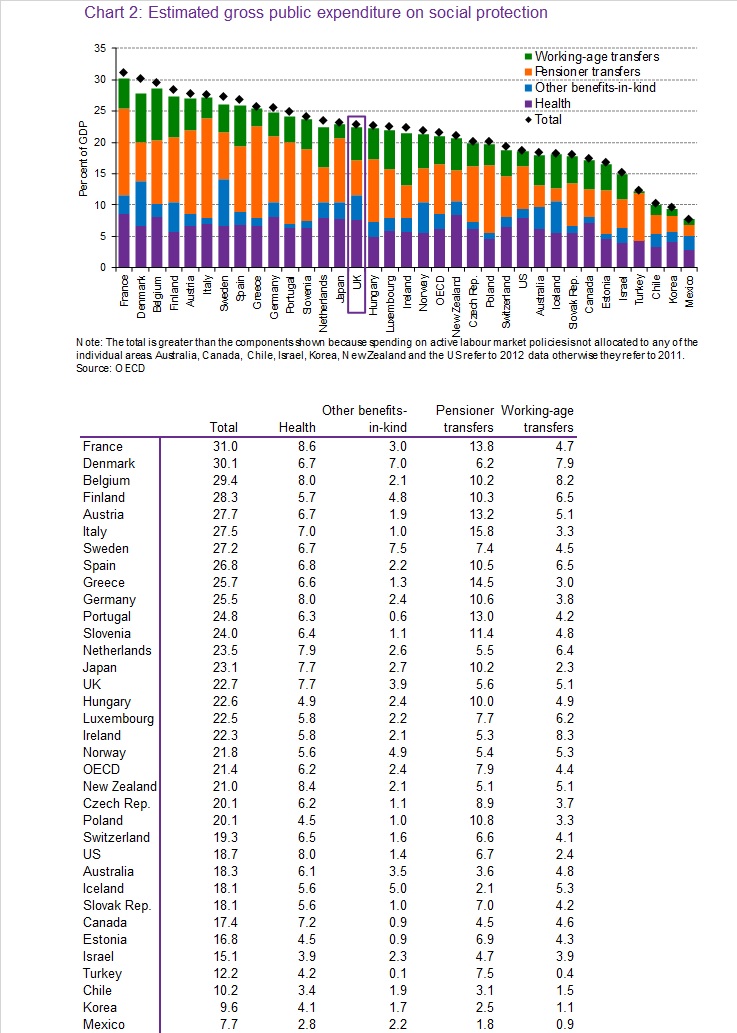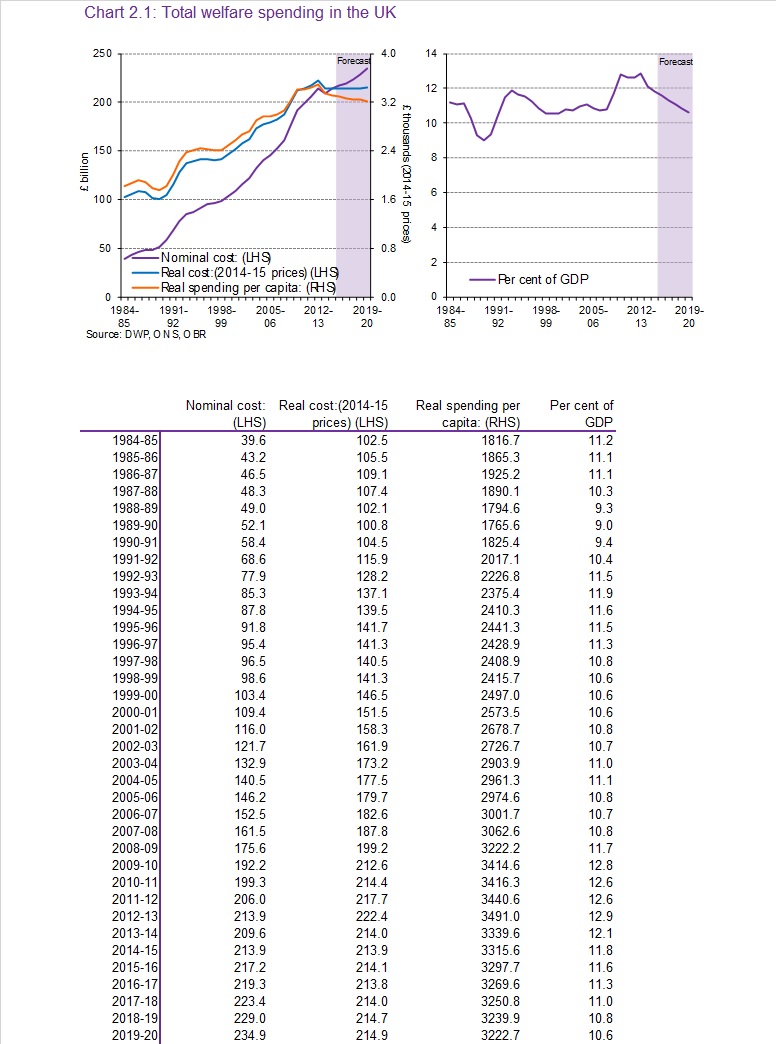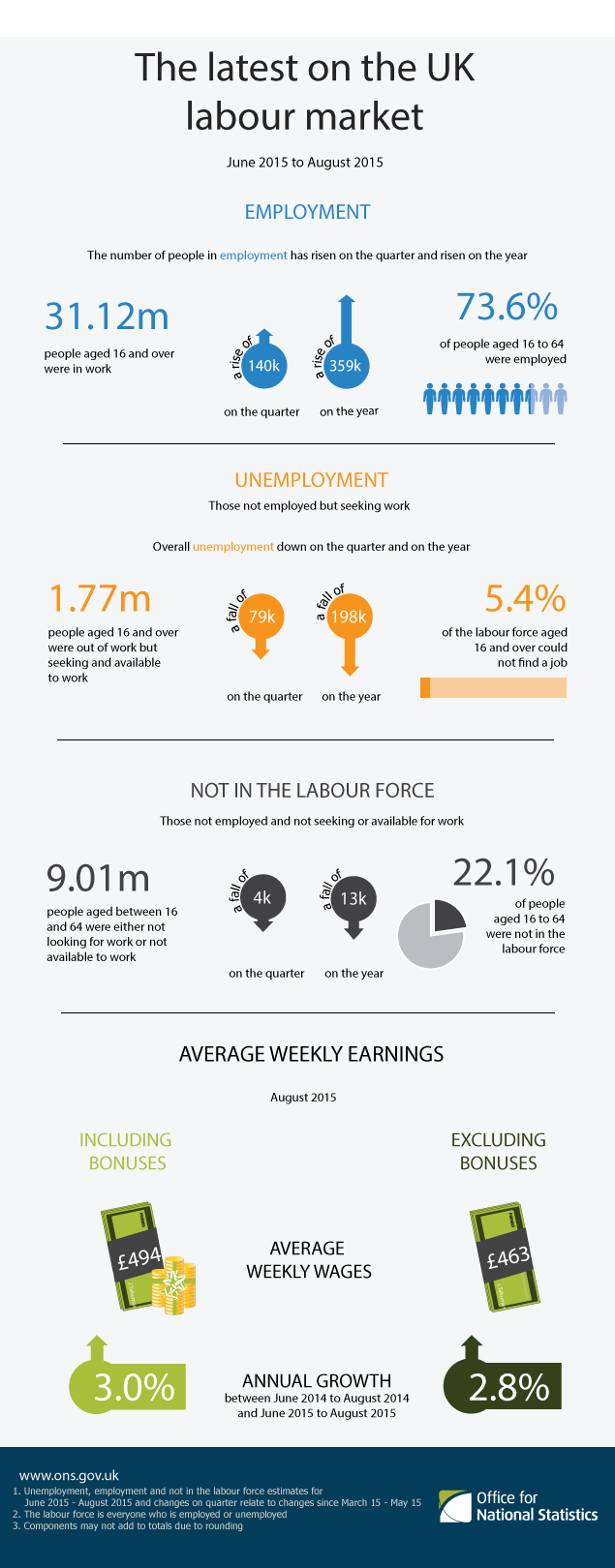Work TV
Watch our TV Channel dedicated to the ‘World of Work’. Explore our video library for informative videos featuring career opportunities at leading companies, franchising opportunities, further education and recruitment professions and their services.
Simon Collyer
Eurozone Woes
EUROZONE — Deflation Is Back: You’d never guess from the reference to “inflation,” but in fact the eurozone’s prices decreased by 0.1 percent in September according to the EU’s statistics agency Eurostat. In September 2015, negative annual rates were observed in 17 member states, the worst being Cyprus (-1.9 percent), Romania (-1.5 percent) and Spain (-1.1 percent). Just one country recorded annual inflation over 1 percent: Malta. Deflation means that people postpone purchases anticipating prices will drop further.
POVERTY — ONE IN FOUR EUROPEANS AT RISK:The risk of poverty or social exclusion affected 122 million people, 1 in 4 persons, in the EU in 2014 according to new Eurostat figures. Marianne Thyssen, the EU commissioner for employment, social affairs, skills and labor mobility, said in a written statement: “Although the economic recovery is strengthening in the EU and slowly translating into the creation of jobs, the EU is still faced with unacceptably high unemployment and poverty.
Office of Budget Responsibility Stats
Looking at the figures from the Office of Budget Responsibility the figures are interesting. You can see in this graph that spending on welfare in the UK, contrary to what most people believe is not high compared to GDP. In fact the UK is around halfway in the international league tables.

In the UK welfare spending has been faling from 12.8% of GDP to a predicted 10.8% of GDP 2019-20. Spending on Social Security is remarkably steady overall.

Court Fees Pervert Justice
Defendants are being “incentivised” by government-imposed charges to plead guilty rather than risk an expensive fight in the crown court, the chairman of the Bar Council has warned. The criminal courts charge, which requires those who plead guilty at a magistrate’s court to pay £150 but forces those convicted at crown court to pay £1,200.
The lord chief justice, Lord Thomas of Cwmgiedd, said that steep rises in criminal and civil court fees were putting access to justice beyond the reach of most people and “imperilling a core principle of Magna Carta”.
The charge, which came into force in April, was introduced by the previous justice secretary, Chris Grayling. More than 50 magistrates in England and Wales have already resigned in protest at the charge, according to the Magistrates Association. Many doubt whether much of the debt will be collected as a significant number of defendants are too poor to pay.
The criminal courts charge disproportionately punishes the poorest in our community. Those who cannot pay for a TV licence, a train ticket, or previous fines. Simultaneously, the job centres are sanctioning people’s benefits lasting for anything up to three years without a fair trial.
Earlier this year A 32-year-old woman, Louise Sewell, stole Mars bars worth 75p from a shop in Kidderminster. She was undergoing a benefits sanction and had not eaten for two days. She pleaded guilty and was ordered to pay a criminal charge of £150.
Some courts have resorted in cases where defendants have limited means to ordering an absolute discharge, which avoids the imposition of the criminal law charge, but also nullifies the possibility of a victim compensation order.
The Labour justice spokesman, Lord Beecham, whas said: “The uniform imposition of these fixed charges is contrary to the courts’ current approach, which is one of totality – taking into consideration the nature of the offence and the effect, including the financial effect of fines and costs already levied.
“Judicial discretion under these regulations is being displaced by what one might call Ryanair justice, with significant add-ons, often disproportionate to the basic financial penalty.”
Essential Living Fund
If you have been sanctioned you may find you have fifteen days to manage without food. This is if you have used up your three Food Bank, food vouchers, in a twelve month period. Different Food Banks may have different rules.
Another option is to apply for an Essential Living Fund grant. The scheme is quick, efficient and a pre-payed card can be collected from a Citizens Advice Centre. The scheme may operate a different way in other parts of the country. Spending has to be on essential items and you MUST keep the receipts and ideally download a expenses sheet from Microsoft Excel.
You cannot spend on items like cigarettes, alcohol, nightclubs or massage parlours. So it would not be much user to Charlie Sheen. You can check your balance over the telephone or via a website.
Disadvantages of the scheme:
- JCP advisors are not telling claimants about it.
- The letter with the Debit Card PIN number - the number on the clear plastic are so faint you can barely read them. 60% of people over forty need reading spectacles.
Overall the scheme is a God-send.
Ironically however, when you look at all the actions that have to be taken following a sanction - if there is an appeal - and the necessity to provide emergency funding, we wonder if these sanctions, that are given without [proper] Good Cause are worth doing?
When you look at all the work and management time costed out, plus the fact this all distracts serious jobseekers - is it really worth it in costs to the public purse? We think not?
Why jobseekers should be sanctioned for a minor infraction, when the DWP has 48 weeks to offer redress to a jobseeker, when it is clearly their mistake. This is then followed by a Tribunal when approximately 2/3rds of these are found in the Claimant favour.
The ABC wants to see interest paid on tribunal awards where economic loss has been suffered and a discretionary payment devised to act as a deterrent to the DWP to stop them dragging our cases which can be solved immediately.
We want to see in time that an ABC regional representative touring on a circuit can meet with local JCP offices and discuss case files on Claimants so matters can be resolved, before they go into the costly appeals system, saving taxpayers a small fortune.
We want to see targets set to reduce the number of appeals lost by the DWP to below 5%.
DWP Select Committtee
EVIDENCE SESSION: Benefit delivery
9.30am, Wednesday 21 October, Wilson Room, Portcullis House
The Work and Pensions Committee is holding an inquiry into the timeliness and accuracy of benefit delivery by the DWP. Potential problems that can arise when benefits are delayed or underpaid include people resorting to food banks for emergency food rations.
This is the first oral evidence session for the inquiry, with organisations who offer benefits advice to claimants. The Committee will be exploring potential problems with benefit delivery and their impact on claimants, issues emerging from the roll-out of Universal Credit and possible options for improving benefit delivery processes.
Witnesses:
At 9.30 am
- Clarissa Corbisiero-Peters, National Housing Federation
- Rhiannon Sims, Citizens Advice Scotland
- Clare Jephcott and Barbara King, Islington Law Centre
At 10.15am
- Peter Hughes, Wigan and Leigh Homes
- Carmel Keddy, Derbyshire County Council
- Clare Hughes-Cross, St Mungo’s Broadway
FURTHER INFORMATION:
Committee Membership is as follows:
Frank Field (Labour, Birkenhead) (Chair); Debbie Abrahams (Labour, Oldham East and Saddleworth); Heidi Allen (Conservative, South Cambridgeshire); Mhairi Black (Scottish National Party, Paisley and Renfrewshire South); Ms Karen Buck, (Labour, Westminster North); John Glen (Conservative, Salisbury); Richard Graham (Conservative, Gloucester); Mrs Emma Lewell-Buck (Labour, South Shields); Craig Mackinlay (Conservative, South Thanet); Jeremy Quin (Conservative, Horsham); Craig Williams (Conservative, Cardiff North).
Facebook - Don't Like Us
Facebook paid just £4,327 corporation tax in the UK despite £35m staff bonuses
The social networking firm paid average of £210,000 to staff in Britain, but overall loss in UK of £28.5m meant very little corporation tax was due.
Meanwhile in the US just 158 families, along with companies they own or control, contributed $176 million in the first phase of the US election campaign, a New York Times investigation found. Not since before Watergate have so few people and businesses provided so much early money in a campaign, most of it through channels legalized by the Supreme Court’s Citizens United decision five years ago.
In marshaling their financial resources chiefly behind Republican candidates, the donors are also serving as a kind of financial check on demographic forces that have been nudging the electorate toward support for the Democratic Party and its economic policies. Two-thirds of Americans support higher taxes on those earning $1 million or more a year, according to a June New York Times/CBS News poll, while six in 10 favour more government intervention to reduce the gap between the rich and the poor. According to the Pew Research Center, nearly seven in 10 favour preserving Social Security and Medicare benefits as they are.
Poundland Gets Richer
Private equity company Warburg Pincus has been chortling away this week.
Through its 2010 investment in discount store chain Poundland, Warburg Pincus helped transform Poundland into the largest single-price value retailer in Europe by both sales and number of stores. In partnership with management, Warburg Pincus almost doubled store numbers in the space of four years, attracted new types of customer and supported the company’s move into Europe.
The company operates under the “Poundland” brand in the UK, where it sells branded and own label products at the single price point of £1, and under the “Dealz” brand in Ireland, where it sells the vast majority of its products for €1.49. Poundland opened its first store in 1990 and has grown to operate a network of over 500 stores across the UK and Ireland, with a long-term target of operating over 1,000 stores in the UK. In 2014, Poundland floated on the London Stock Exchange
The retailer claims that their Croydon store is the busiest single-priced discount outlet in the world, generating more than £9 million in revenue per year with 30,000 customers a week The company estimates it serves 2.75 million customers in an average week.
In February 2013, Cait Reilly, won her case that her local Jobcentre had breached benefit laws by insisting that she work at Poundland to maintain her unemployment benefit payments. The government had to redraft its legislation on the so-called "sector-based work academy" after losing the case. Reilly called her two weeks working unpaid at Poundland "a complete waste of my time".
Poundland has courted controversey on other occasions. A ban on staff wearing Poppys had to be recinded after public protest and according to Wikipedia, Poundland were previously fined £24,000 following an investigation of a store in Croydon, London. Customer complaints had been received by the local council, and inspectors allegedly found that hygiene was poor, the store had a widespread mouse infestation and that food which had been contaminated by mice chewing open the packaging and leaving droppings and urine inside, were then re-sealed and sold to the public. During the trial Poundland admitted failing to withdraw food unfit for human consumption, not protecting food from contamination, failing to control mice and failing to ensure the store was well maintained and clean. Additionally they admitted to failure to implement and maintain its own food safety management system.[
In June 2015, Poundland were fined £10,000 following an investigation by Islington Council of a store in north London. Evidence of a widespread mouse infestation and that the company had failed to take appropriate action to remedy the situation was presented in court.
DWP Extends Full Personal Independence Payment (PIP) Rollout
From October 2015, PIP will be rolled out across Great Britain to claimants that have a long-term or indefinite award of Disability Living Allowane (DLA).
The rollout will be carefully managed to ensure that the volume of invitations issued to claimants in each postcode area, matches the capacity of the assessment providers.
To help people understand what is happening, DWP is testing a range of communications and channels. These are designed to raise awareness about the changes, and help claimants make informed decisions about whether to apply for PIP and how to make an application. For more information visit www.gov.uk/dla-ending
DWP is writing to everyone who was aged 16 to 64 on 8 April 2013, and is currently claiming DLA, to tell them that their DLA is ending.
For more information go to www.gov.uk/dla-ending
Fit for Work
Employer referral service is now live across Great Britain.
Fit for Work is a free occupational health scheme designed to help manage sickness absence.
Companies can receive a £500 tax exemption for each employee referred to the service on medical grounds.
Businesses have been able to refer their employees in Scotland since 29 June 2015. GPs have been referring working patients to Fit for Work nationwide since July 2015.
Employers can refer employees to the service via the online referral form available on the Fit for Work website
























